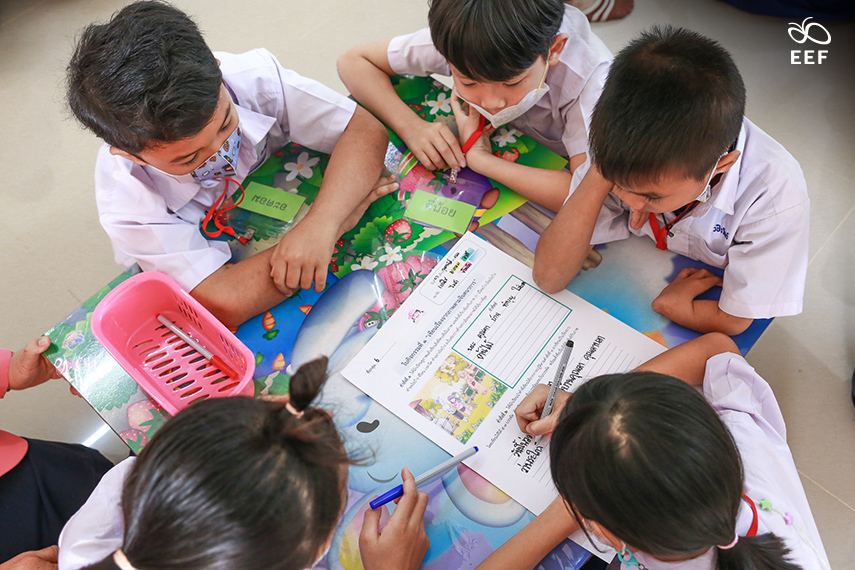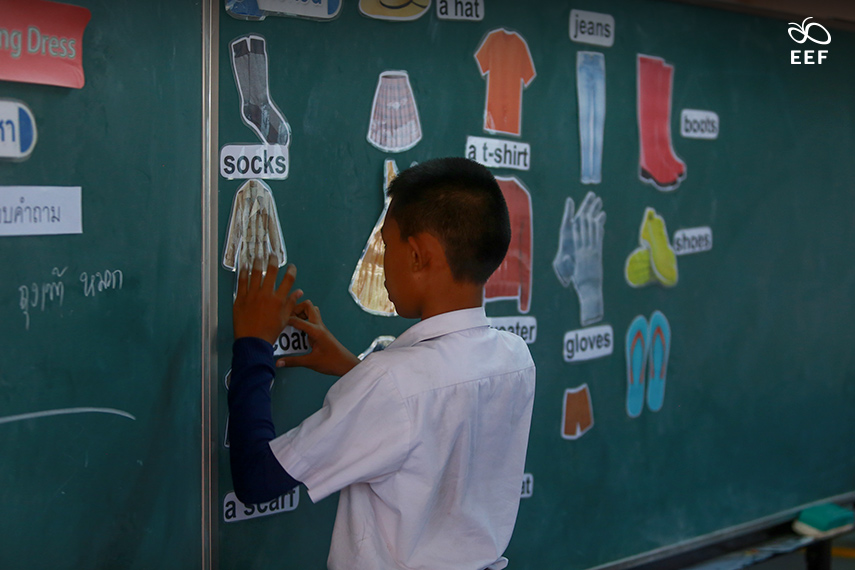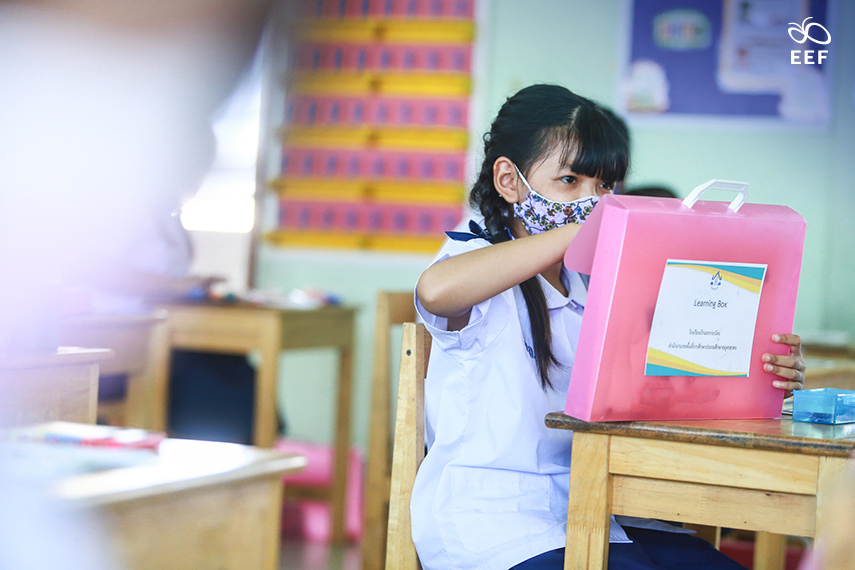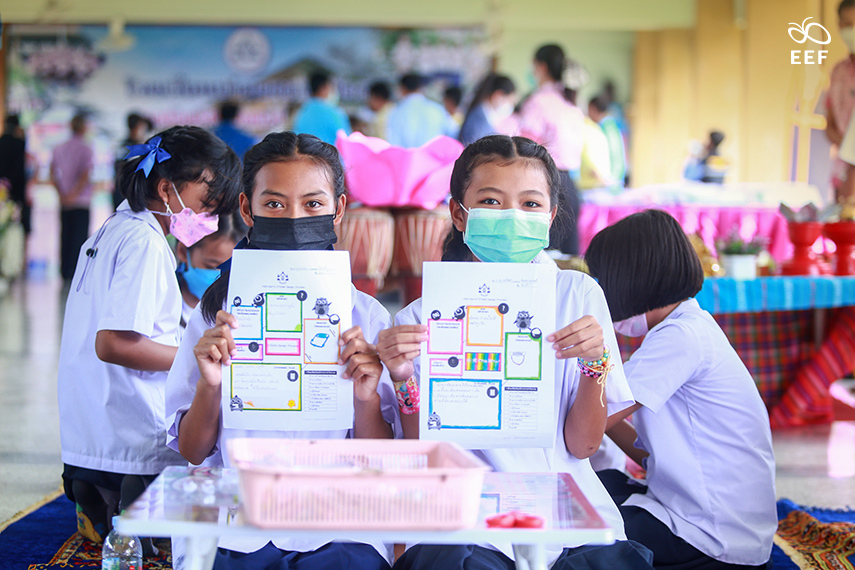
The Teacher and School Quality Program or TSQP, initiated by the Equitable Education Fund (EEF) Thailand, aims to continuously enhance the quality of education in medium-sized schools. The program, now in its fourth year in 2022, focuses on developing self-improving schools that can serve as models for others. By improving school management and teaching processes, the program aims to develop 10% of all medium-sized schools as effective models of management, teacher quality improvement, and high-quality classroom practices.
Implemented in 630+ schools across 39 provinces, the program began with the first generation of TSQP schools, involving 220+ schools that completed three years. Currently, the second generation of TSQP schools, consisting of 400+ schools, is in its third year of focused school development. Collaboration with various affiliated organizations is a key aspect of the program, aiming to develop mechanisms aligned with school quality improvement measures.

The program focuses on six key areas of progress:
1) defining quality standards for schools;
2) developing teachers and administrators through community-based experiential learning processes;
3) establishing an information system for quality development (Q-Info);
4) enhancing teaching and learning practices and the use of innovative technologies in classrooms;
5) creating collaborative networks among schools; and
6) implementing support systems to empower students with special needs.
In 2022, the program focuses on developing schools through a whole school approach. This encompassed improving management systems, transforming teaching and learning, and creating high-quality teaching and learning processes. The goal was to provide students with quality learning experiences and enhance their educational achievements, including knowledge acquisition, skills development, attitudes, and individual abilities.
Autonomy in school management and self-development was a key emphasis of the program. Coaching and mentoring teams played a significant role in promoting consultation and collaboration in educational management at various levels. The involvement of stakeholders aimed to establish a “self-developing school” prototype that could be replicated and extended to other schools, leading to systemic changes and policy transformations.

Significant outcomes were achieved. Development mechanisms aligned with school quality improvement measures were established, enabling students to learn through practical experiences and enhance their aptitudes. Students demonstrated knowledge acquisition and application in their daily lives, including both general and subject-specific knowledge. They also developed problem-solving abilities, effective communication skills, creative thinking, and life and vocational skills that could generate income for their families.
The Teacher and School Quality Program also brought about systemic changes by addressing students’ and communities’ visions, needs, and expectations. It served as a model for managing and developing teacher quality and fostering innovation in teaching and learning practices. Collaboration between schools, parent communities, and supervising agencies was encouraged, promoting active involvement in the continuous improvement of schools at the local level.

The evaluation of the program’s first and second generations indicated positive changes in the participating schools. The overall performance showed significant improvements, ranging from good to excellent. Additionally, the evaluation highlighted the positive impact of the program on participating school networks and teachers, emphasizing the success of support and development efforts across all networks.
The Teacher and School Quality Program aims to promote systematic improvement, enabling schools to develop themselves authentically. Through collaboration with various networks, the program has transformed into the Teacher and School Quality Movement. The movement leverages the results of the changes that have occurred, develops strategies, and brings about transformative changes and system innovations in education.

The model derived from the Teacher and School Quality Program has generated innovative concepts and practices, including a support and development system to reduce dropout rates, knowledge and innovation for school development in local contexts, and quality development innovations encompassing school management, teaching, and learning. These innovations will be proposed as recommendations for affiliated agencies in the future.
Source: Equitable Education Fund. (2022). Annual Report.
https://www.eef.or.th/wp-content/uploads/2023/04/oiteef2023-O13.pdf

